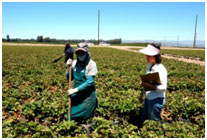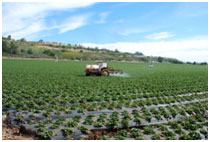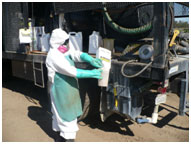- Agricultural Commissioner
- About Us
- FAQs
- Funding
- How We Are Funded
- County General Fund
- Pesticide Use Reporting
- Oak Death Inspection
- Pierce’s Disease Control
- Pierce’s Disease Nursery Treatments
- Organic Crops Program
- Seed Inspection
- Nursery Inspection
- Farmers Market Inspection
- Land Use Planning
- Pest Control Business Registrations
- Citrus Maturity Inspection
- Programs
- How We Spend Our Time
- Pest Detection and Eradication
- Citrus Inspection and Commodity Regulation
- Pierce’s Disease Control
- Pest Exclusion and Plant Quarantine
- Seed Inspection
- Nursery Inspection
- Farmers Market Inspection
- Egg Quality Control
- Apiary Inspection
- Crop Statistics
- Pesticide Use Enforcement
- NPDES MS4 Permit Compliance Inspections
- Land Use Planning
- Toland Landfill Project
- Weights & Measures
- FORMS/DATA
- Notices
- APAC
- SALC GRANT
- Crop Reports
- Contact Us
- Agricultural Commissioner
- About Us
- FAQs
- Funding
- How We Are Funded
- County General Fund
- Pesticide Use Reporting
- Oak Death Inspection
- Pierce’s Disease Control
- Pierce’s Disease Nursery Treatments
- Organic Crops Program
- Seed Inspection
- Nursery Inspection
- Farmers Market Inspection
- Land Use Planning
- Pest Control Business Registrations
- Citrus Maturity Inspection
- Programs
- How We Spend Our Time
- Pest Detection and Eradication
- Citrus Inspection and Commodity Regulation
- Pierce’s Disease Control
- Pest Exclusion and Plant Quarantine
- Seed Inspection
- Nursery Inspection
- Farmers Market Inspection
- Egg Quality Control
- Apiary Inspection
- Crop Statistics
- Pesticide Use Enforcement
- NPDES MS4 Permit Compliance Inspections
- Land Use Planning
- Toland Landfill Project
- Weights & Measures
- FORMS/DATA
- Notices
- APAC
- SALC GRANT
- Crop Reports
- Contact Us
Pesticide Use Enforcement



The PUE program benefits the public, the industry and the environment by permitting the legal and safe use of necessary pest control products, and taking action against people who use these products illegally or unsafely. The County Agricultural Commissioner (CAC) has jurisdiction over all uses of pesticides including home and garden uses, agricultural uses, industrial and institutional uses, and use for structural pest control. Most of the activity in this program is focused on the agricultural use of pesticides, and the use of Restricted Materials by anyone. Applications of pesticides are monitored by staff from the CAC’s office, and people who violate laws and regulations are subject to fines of up to $5000. Physicians are required by law to report any suspected exposure to a pesticide to the County Health Officer. These exposures are then investigated by the CAC to see if any applicable laws or regulations were violated when the pesticide was used, and to determine whether the illness was related to a pesticide exposure. The Agricultural Commissioner also conducts inspections to see if required records are kept, if training has been provided to pesticide handlers and agricultural workers, and if required waiting periods have been observed before workers reenter treated fields or before crops are harvested.
The Agricultural Commissioner issues permits for the use of those products deemed by the state to pose the most risk to handlers, fieldworkers, the public or the environment. These products are called restricted materials. Anyone who uses any of these products is required to notify the CAC at least 24 hours prior to the application. The CAC must condition the use of these materials to mitigate any hazards that he determines may result from the application or the application may not be done. Sites where these products will be used are often inspected prior to the application to ascertain that all conditions are being met. Applications of these materials are often targeted for pesticide use monitoring inspections.
The CAC also collects data on pesticide use. Anyone who uses a pesticide for an agricultural use, does pest control for hire, or uses a restricted material is required to report that use to the CAC at least monthly. The data collected is sent to the California Department of Pesticide Regulation where data from all over the state is compiled annually. Data entry of pesticide use reports is funded through a contract with the California Department of Pesticide Regulation.
The Pesticide Enforcement Program is funded primarily by a tax on all pesticides sold in California. This tax called the “mill tax” provides funding for both county and state programs that regulate pesticides.
For updates on pesticide use data and public records, please visit our public data requests page.



